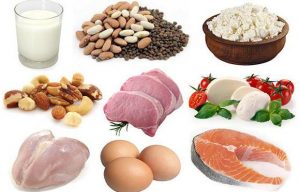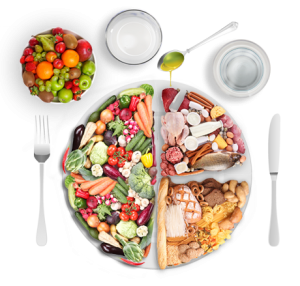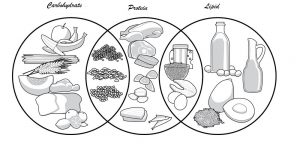
Nowadays, looking becomes the main priority of human beings. Everyone wants to look good, build muscle mass, improve their physical appearance. People used to go to the gym, do lots of workouts and follow a proper diet plan for that. There is not any easier or faster way to grow your muscle. You need to control your calories intake if you want to gain muscle or lose weight. Probably you have heard that you need to eat 2500 – 2000 calories per day. Does it really work? Here we will explain to you the possible information regarding how many calories you need to take to gain muscle.
I. What Are The Main Muscle Building Factors?
When you want to build your muscle mass and lose weight, you need to eat good calories to maintain your weight. This depends on the various factors, including your:
- Age
- Bodyweight
- Body fat percentage
- Diet plan
- Your activity level
- Other variables
So, you need to maintain your weight with the number of calories, and it will vary according to time. You can estimate your current calorie needs and follow diet plan and workout schedules according to your needs.
II. Importance Of Diet For Muscle Building
Working out is key when you want to build muscle. Your workout breaks down muscle tissue, and during recovery, that tissue rebuilds them bigger and stronger. Remember, your body can’t create new muscle tissue. To build muscle gain, you have to intake the proper nutrients in your body, which will help you construct your muscle. This means how much and what you eat is essential to gain muscle. During the workout, you need to take a proper diet plan, especially enough protein that will help you to gain muscle tissue.
To gain better muscle mass and strength, you need to eat enough calories every day. And adequate protein to rebuild more muscle tissue. If you eat lots of protein but are unable to maintain overall calories, you’ll be able to work out and build more muscle. On the other hand, if you eat enough calories and don’t take enough proteins, you want to be able to build muscle tissue instead of gaining fat.
When you eat something, it will cause micro-tears in your body, which will heal and strengthen your muscles. So, proper diet planning is very important to build muscle mass.

III. How Many Calories Should You Eat To Gain Muscle?
The ideal number is 250 and 500 calories to maintain the figure. To understand your intake, first, you need to know what your maintenance figure is! It is the number of calories you need to complete all your activities in one day. It is often referred to as Total Daily Energy Expenditure (TDEE). When you intake a proper amount of calories, it will keep your body in exact shape and weight, and that will change your metabolism process and activity level.
You can also calculate your TDEE as below:
- Choose your weight in pounds (or also you can convert them into KGs) multiply that by 14 to get your lower-calorie level. When you multiply that by 17, you will get a higher calorie level. When you get your metabolism and activity level, you will get the exact amount
- You can choose an online calorie calculator such as calculator.net , legion calorie calculator and freedieting. Add your age, gender, height and weight in it and get the exact figure.
When you estimate how many calories you need to maintain your weight, the next step is to turn your calorie into macronutrients. Keep on reading!
IV. How To Split Macronutrients For The Best Results?
It is also referred to as “macros”. A macronutrient is a nutrient that the body needs to survive, with protein, carbohydrate and fat. A macronutrient has a powerful impact on your body composition, while calories alone dictate how much weight you gain or lose. Macronutrients intake largely dictates whether you gain or lose muscle or fat. That’s the main reason you want to turn your calorie into a targeted macronutrient.
When you eat the right amount of protein, carbohydrate, and fat, you can ensure the most of the weight gain while lean bulking is from muscle, not fat. The exact amount of calories you get from carbs, protein, and fat depends on your goals and preferences. When you want to lose your weight, you have to get:
- 40% of calories from protein
- 30% of calories from fat
- 30% of calories from carbs
If you are looking to get leaner, the above guideline will change. It is best to get 1 to 1.2-grams of protein per pound of body weight, 20% of your calories from fat. When you want to gain your muscle. You have to get:
- 30% of calories from protein
- 30% to 40% of calories from carbs
- 20% to 30% of calories from fat
The best way to consume calories is through different meals. It allows you to continue having breakfast, lunch and dinner, as well as two snacks in between.

V. What Percentage Of Calories Should Come From Carbohydrates?
The Dietary Guideline for Americans confirms that carbohydrates make up 45 to 65% of your daily calories. For example, if you get 2,000 calories per day, 900 to 1300 calories should be from carbohydrates. And if you want to convert them in grams, it will be between 225 and 325 grams of carbohydrates.
You can find carbohydrate content on packages of foods on the nutrition facts label. The label shows carbohydrates, including fiber, sugar, starches, and alcohols. It might also list separately total fiber, soluble fiber and sugar.
VI. What Food Should You Eat?
To select the right food, you need to prepare a proper diet plan. You need to understand which foods class as protein, carbs, and fat select the right food.
Protein:
Meat such as chicken and beef are great sources of protein. You can also eat sardines, lentils, low-fat cottage cheese, greek yogurt and egg whites.
Carbs:
Brown rice, oatmeal, popcorn, whole-wheat bread, crackers, wholemeal pasta, and buckwheat all are healthy carbs.
Fats:
Egg yolks (you can eat white protein content). Avocado, Albacore tuna, herring, lake trout, Peanuts, Pumpkin seeds, Hazelnuts, Almonds, Canola oil, Sunflower oil, walnuts, and Mackerel are also good sources of healthy fat.
These foods can help you to feel full and provide the valuable nutrients level. You can also control calories with a proper meal planning.

VII. Conclusion
Your proper diet plan and nutrition are a key part of your muscle-building journey. Always remember health changes and improvements and weight loss results vary from one to one; you may not achieve the same results all the time. To gain muscle mass, eat high-quality sources of protein, carbs, and fat. Before making any decisions, consult your doctor and ensure that you are not deficient in any mineral or vitamins.

Leave a Reply